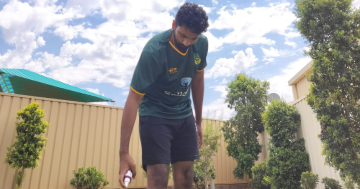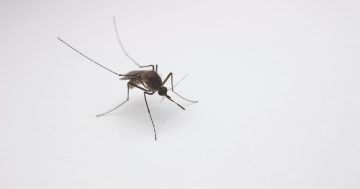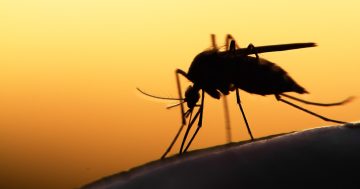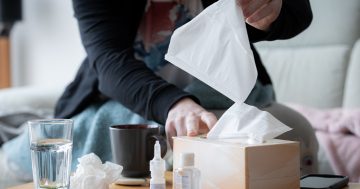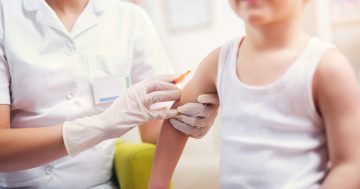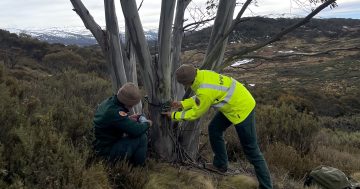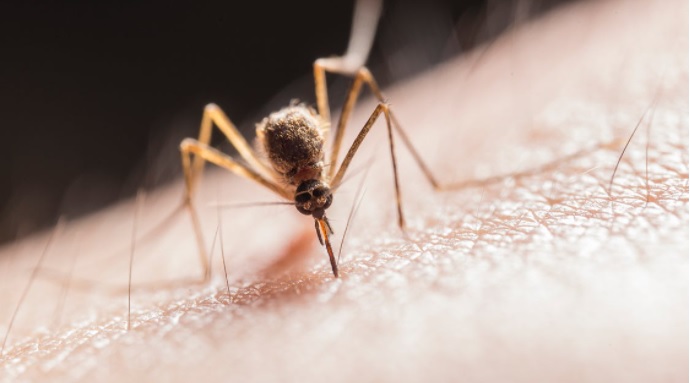
People are being warned to avoid mosquito bites following the death of a man from Griffith. Photo: File.
A Riverina man has been confirmed as the first person in NSW to die with mosquito-borne Japanese encephalitis, almost a month after his death.
NSW Health said the man, in his 70s, from the Griffith region, died in a Sydney hospital on 13 February. Post-mortem testing subsequently found he had contracted the JE virus, which was confirmed today (Wednesday, 9 March).
NSW Health has expressed its sincere condolences to his loved ones and urged the public to be vigilant and take precautions against mosquito bites.
There are now three known cases of JE in NSW residents, including a man and child who are currently being cared for in Victorian hospitals.
Several more people in NSW are undergoing further testing for JE, and more cases are expected to be confirmed over the coming days and weeks.
Locally acquired cases of JE have never previously been identified in NSW in animals or humans. However, since late February, the JE virus has been confirmed in samples from pig farms in NSW, Queensland, Victoria and South Australia.
NSW Health is working closely with the NSW Department of Primary Industries, the Commonwealth Department of Health and other state and territory agencies to determine the extent to which the virus is circulating.
The JE virus is spread by mosquitoes and can infect animals and humans. It cannot be transmitted between humans, and it cannot be caught by eating pork or other pig products.
There is no specific treatment for JE, which can cause severe neurological illness with headache, convulsions and reduced consciousness in some cases.
NSW Health has procured JE vaccine and will continue to work with other jurisdictions to make vaccine available to at-risk populations.
At this stage of the response, vaccination is being prioritised for workers on the affected pig farms and their family members living on-site.
As more vaccine becomes available in Australia, further vaccination planning in NSW will be informed by the extent to which the virus is circulating, which communities may be most at risk from infection and advice from expert bodies, including the Communicable Diseases Network of Australia.
A NSW Health spokesperson said the best thing people could do to protect themselves and their families against JE was to avoid mosquito bites.
Simple actions you can take include:
- Avoid going outdoors during peak mosquito times, especially at dawn and dusk, and close to wetland and bushland areas.
- Wear long sleeves and pants outdoors (reduce skin exposure). Also wear shoes and socks where possible. There are insecticides (eg permethrin) available for treating clothing for those spending extended periods outdoors.
- Apply repellent to all areas of exposed skin, especially those that contain DEET, picaridin, or oil of lemon eucalyptus which are the most effective against mosquitoes. The strength of a repellent determines the duration of protection with the higher concentrations providing longer periods of protection. Always check the label for reapplication times.
- Reapply repellent after swimming. The duration of protection from repellent is also reduced with perspiration, such as during strenuous activity or hot weather so it may need to be reapplied more frequently.
- Apply the sunscreen first and then apply the repellent. Be aware that DEET-containing repellents may decrease the sun protection factor (SPF) of sunscreens so you may need to re-apply the sunscreen more frequently.
- For children in particular – most skin repellents are safe for use on children aged three months and older when used according to directions, although some formulations are only recommended for children aged 12 months and older – always check the product. Infants aged less than three months can be protected from mosquitoes by using an infant carrier draped with mosquito netting that is secured along the edges.
- If camping, ensure the tent has fly screens to prevent mosquitoes entering.
- Mosquito coils and other devices that release insecticides can assist reducing mosquito bites but should be used in combination with topical insect repellents.
- Reduce all water holding containers around the home where mosquitoes could breed. Mosquitoes only need a small amount of liquid to breed.







